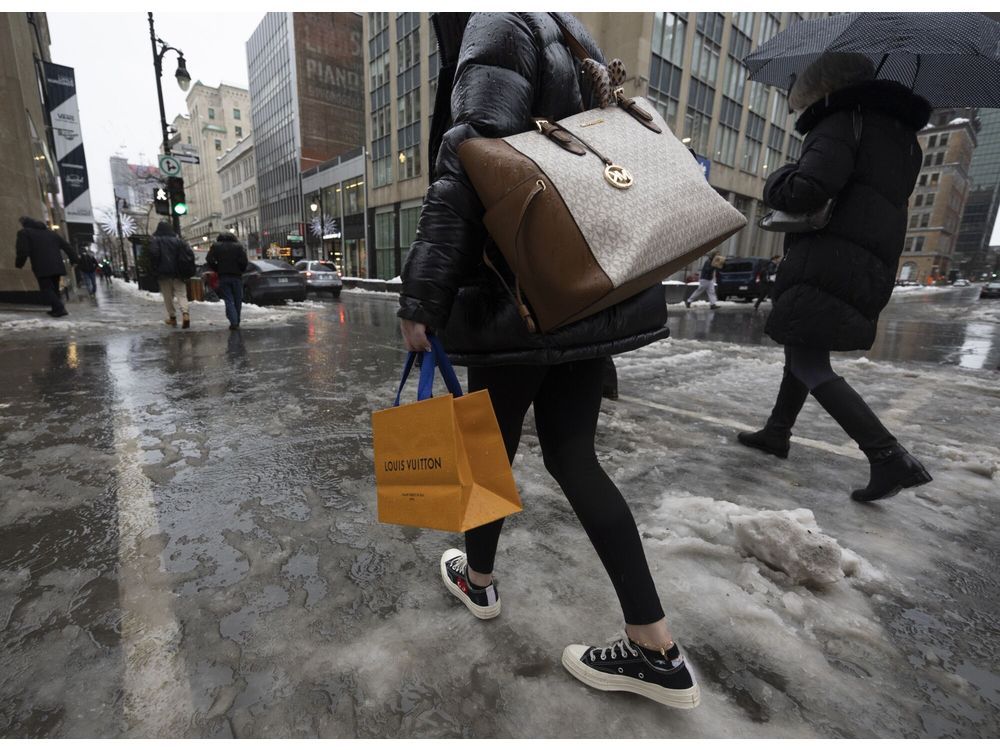
Article content
(Bloomberg) — Canadian consumers sharply pulled back their spending in January after stronger-than-expected retail purchases at the end of last year.
Receipts for retailers fell 0.4%, the biggest decline since March 2023, according to an advance estimate from Statistics Canada released Thursday. That followed a 0.9% jump in December, which beat the median estimate of 0.8% gain in a Bloomberg survey. In volume terms, retail sales rose 0.8% that month.
Article content
December’s increase was led by higher sales at car and parts dealers. Sales were also up at gas stations, food and beverage retailers and general merchandise retailers.
Excluding autos, retail sales rose 0.6%, versus expectations of 0.7% increase. Core retail sales — which exclude gas stations and car dealers — were up 0.5% in December.
In the fourth quarter, retail sales rose 1%, a second straight quarterly increase. In volume terms, the receipts increased 1.3% that quarter.
While the data point to strong consumer spending at the end of last year, the sharp pullback in January highlights some weakness, especially amid Canada’s rapid population growth from immigration. The slowdown in retail consumption is expected to continue as more households are due to renew their mortgages this year at higher interest rates.
“Overall we continue to expect high interest rates to weigh on discretionary consumption in early 2024, with autos being the one outlier driven by a fading of supply chain issues,” Katherine Judge, an economist with the Canadian Imperial Bank of Commerce, said in a report to investors.
Article content
Tiago Figueiredo, a macro strategist at Desjardins Financial Group, said in a note to investors that goods prices were lower, which suggests that volumes were likely roughly unchanged during January.
“While that’s not particularly good news given how fast the population is increasing, it’s not worrisome enough to warrant an imminent change in the policy stance from the Bank of Canada,” he said.
Read More: Canada Bonds Surge as Inflation Slows More Than Forecast
Regionally, sales were up in eight provinces in December, led by higher sales in Ontario and British Columbia. In Ontario, sales rose on the strength of car sales, while in British Columbia, food and beverage sales led the increase.
Prince Edward Island saw the largest provincial decrease, led by lower sales at gas stations.
The statistics agency didn’t provide details on the January estimate, which was based on responses from 52.7% of companies surveyed. The average final response rate for survey over the previous 12 months was 88.3%.
—With assistance from Erik Hertzberg.
(Adds economist reaction.)
Share this article in your social network